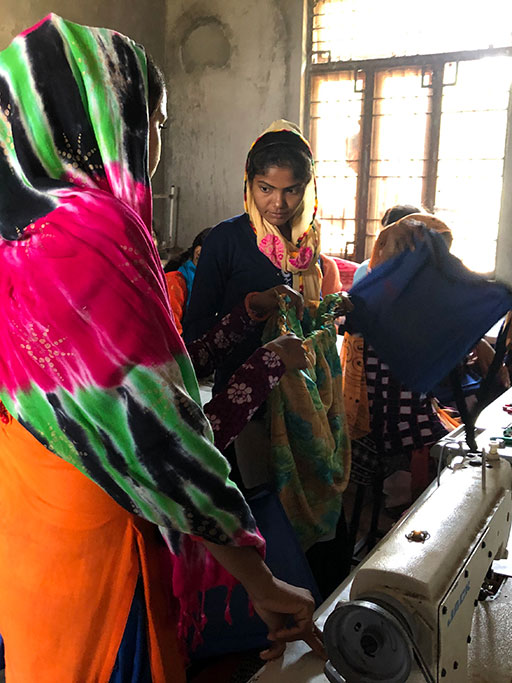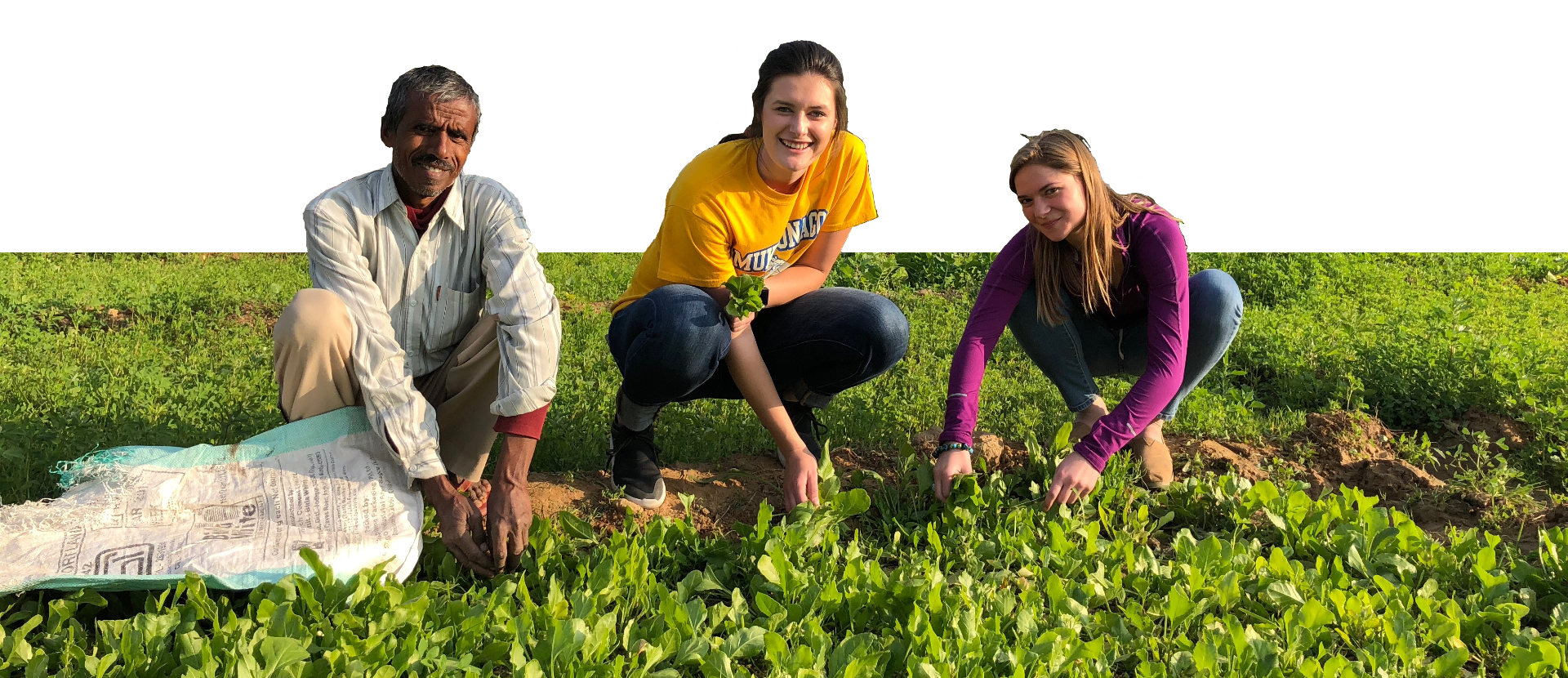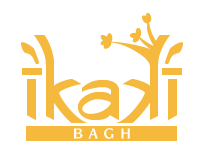Coming soon!
Ikaki Bagh strongly support the principle of locally led change and empowerment – a guard against creating dependency on its support among the local community.
We are doing this by working with local, international experts and local villagers.
A German Company, under its Community Social Responsibility program, has delivered workshops under its for local women learning skills using sewing machines. This equipment has been out of reach of these women to date. This is building on traditional hand-made skills of weaving, beading and rope making.
The goal is to establish direct point-of-sale outlet. Women will sell direct to tourists keeping the major share of the profits.
Locally led change

Community Outreach
Engaging with local communities is an essential feature of the Ikaki Bagh model, directly linking with:
- a nearby Jhinjha village of Bairwa people, with over ten other villages within a 10 km radius, predominantly of Berwa and Meena people
- a local primary school of approximately 240 students from the village and the district more broadly
- small local businesses
In this community, there are significant social disadvantages with limited access to education, reliable income, economic opportunities, essential facilities and infrastructure. Women and young girls face additional challenges because of their gender.
A Training and Education centre is earmarked for Ikaki Bagh to provide a place for local women and older girls to develop skills in specialist, value-added spin-offs from organic farming, as well as career pathways in tourism and hospitality. Ikaki Bagh will also provide scholarships to young women to increase their access to advanced secondary and undergraduate education (or university education).
Local Products
Ikaki Bagh provides an outlet for villagers to sell hand-made products and produce grown directly from local villagers through sustainable farming. Produce is distributed directly to visitors with all proceeds returned directly to the villagers. Local handmade goods for purchase will include knitted cushions and pillow covers using traditional patterns, Jaipur block printed handkerchiefs and bandannas, handcrafted skin care soaps, locally made pickles, and handmade kites, as kite-flying is a long-standing tradition in the region.
Visitors may also order a ‘charpoy’, a traditional Indian day bed that is exceptionally comfortable. The charpoy is made with a tightly woven bed of rope, as ropework is a specialty of the region.
Other Development Projects
The planned local goods shop is one of a handful of development projects planned or underway.
Training and Education Centre
- restoration ecology
- environmental science
- plant propagation and the identification
- use of indigenous medicinal plants
- small scale organic farming
- the culture and history of the local Bairwa people, and other communities in the district
and will include:
- a small library
- database
- artefacts
- photo displays
- a range of handicrafts locally made by women from the Jhinjha Village.
The Centre will serve as a resource for community outreach programs with the Jhinjha Village and other local communities, especially the development of micro-economic development and scholarship opportunities focused on training and career pathways for girls, and employment opportunities at Ikaki Bagh.
Primary School
Improved Sanitation System
Funding is wanted to provide:
- a purpose built, walled and roofed facility
- separate squat toilets with flushing for boys and girls
- a composting or bio-sanitation system, or at minimum an underground pit latrine with slab (funding dependent)
- clean water for hand-washing
- sanitary napkin incinerator
- public hygiene education materials
This replacement facility will:
- reduce school absenteeism from hygiene related sickness
- reduce open field defecation
- remove a source of flies and mosquitoes
- provide girls with the confidence to attend school, especially during their monthly menstruation cycles
- help discard sanitary napkins in an environmentally friendly way
- support a cleaner environment
- provide a model facility that can be built at neighbouring schools and villages
School Furniture and Equipment
Installing in each school classroom:
- desks with bench seating
- lockable bookshelves
- a large pin-board
will:
- improve the health and conditions for the schoolkids who currently sit on the floor, especially in Winter
- improve concentration and learning conditions
- provide teachers with direct access to books and other learning resources
- enable teachers and students to put up notices, posters and other education information of importance
Jhinjha Village
Sanitation Bio-gas plant
This will:
- alleviate the current poor sanitation and hygiene conditions of the village
- provide a source of sustainable energy, especially for cooking
- serve as a model for neighbouring villages to emulate
The project is ambitious, necessary and ground breaking.
Funding support is being sought for Stage 1 of the project, which is to build the secure network of drains to link to the proposed site for the bio-sanitation system. This work will also provide local employment for the villagers.
AFFORESTATION
Ikaki Bagh is deeply interested in the overall health of the natural environment. At the core is trying to understand how all organisms in our ecosystems relate to each other and the role of human beings in this environment.
We want Ikaki Bagh to be a highly productive property while also being a leading sustainable farming enterprise. The integration of ecological conservation into property management helps build resilience and promotes healthy environmental conditions.
Parts of Ikaki Bagh and our wider region have suffered environmental degradation from factors such as use of industrial herbicides and pesticides, salinity, erosion and over-grazing.
We are fully committed to a program of ecological restoration.
A major step in our commitment is the careful reafforestation of Ikaki Bagh and surrounding land. We run a tree and shrub planting program. We choose species that are compatible with our local environment, resilient and promote bio-diversity.
Contact Us to Plan Your Visit

